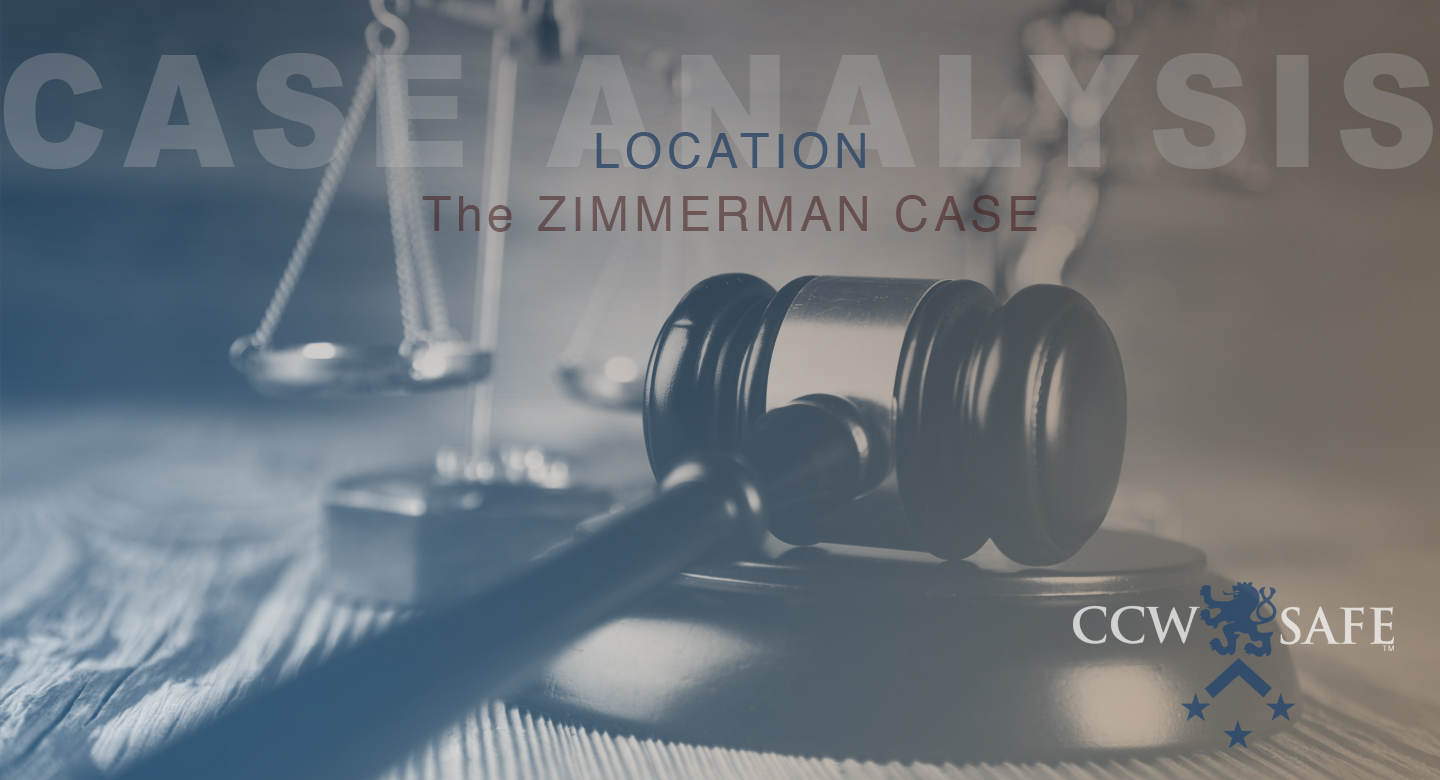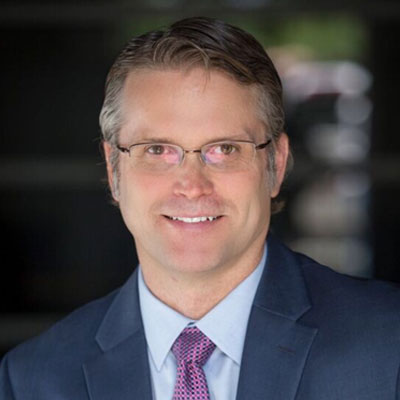
Posted on November 24, 2017 by support@ccwsafe.com in Case Analysis
Legal Case Analysis: The Zimmerman Case- Location
The Zimmerman Case: Episode 2 — Location
In every self-defense scenario, the location of the shooting is eminently important and can have a significant bearing on whether the shooter will face charges and whether the shooting is ultimately deemed justified.
No Duty to Retreat
In the high-profile Zimmerman case, the shooting of Trayvon Martin occurred in a common area within the gated Retreat at Twin Lakes townhome community in Sanford, Florida.
Florida is one of the so-called “Stand-Your-Ground” states, where the tenets of the Castle Doctrine are, in effect, extended to any place a person has the lawful right to be. Florida’s self-defense statute specifically waives the implied duty to retreat, and it says that a person “has the right to stand his or her ground” if that person reasonably believes force is required to thwart another’s imminent use of unlawful force.
http://www.leg.state.fl.us/statutes/index.cfm?App_mode=Display_Statute&URL=0700-0799/0776/0776.html
Some states, like New York, require that a person makes some reasonable effort to avoid using deadly-force. In these states, the duty to retreat is not only implied, it is codified.
http://criminal.findlaw.com/criminal-law-basics/states-that-have-stand-your-ground-laws.html
On the night of February 26, 2012, George Zimmerman was in Florida, in a common area of his own neighborhood where he was lawfully allowed to be, and he was breaking no laws. According to Florida’s statute, Zimmerman had no duty to retreat.
On a technical level, the “Stand-Your-Ground” law became moot during trial. The defense presented strong evidence that showed Zimmerman had been pinned-down by Martin, and that Martin was punching Zimmerman. A martial arts expert at trial demonstrated how recovering from such a prone position is extraordinarily difficult.
At the moment George Zimmerman pulled the trigger, not only did he have no duty to retreat, he had no physical ability to retreat.
Juries are instructed on the law, and they’re expected to follow the law, but they’re not required to, and they can have broad and varying interpretations of the law. Some jurors may have a problem with someone who used deadly force instead of taking some other option. Failure to make efforts to escape the situation may imply aggression to some jurors; and it could speak to the shooters disregard for human life — an element of 2nd degree murder.
It’s much easier to make a self-defense claim when the shooter has made some effort to escape the situation — or had no opportunity for escape.
In Zimmerman’s case, his legal right to be in the common area of his neighborhood was never in dispute, but if just a few elements were changed, this point could have been much less clear. What if Zimmerman had followed Martin all the way to Martin’s father’s home? Had the altercation occurred at or near the front doorstep, a jury could have interpreted that as trespassing, and they may have been far less likely to deem the shooting justified. What if the shooting had occurred on the patio of a third-party’s townhome — again, the waters become muddied.
Neighborhood Watch
The press, when covering the Zimmerman case, frequently referred to him as a “neighborhood watch captain,” implying that he was patrolling the neighborhood in some official capacity when he encountered Martin. The National Sheriffs’ Association has a program called USAonWatch, that sets policies for neighborhood watch organizations, including an emphatic statement that members do not possess police powers and they shall not carry weapons.”
This distinction is made because police have training on how to confront suspects, most civilians do not. We ask police to put themselves in harm’s way to protect civilians, so we hold them to a different standard when they use force. We expect members of neighborhood watch to monitor and report, and when a member of neighborhood watch confronts someone, they will be held to a tougher standard than the police, and a jury may wonder why the put themselves in harm’s way.
While the rules of neighborhood watch were not binding on Zimmerman, and while the defense maintained that he was not “patrolling” in any official capacity, the argument could be made that, as a neighborhood watch volunteer, Zimmerman had assumed additional responsibility and should be, therefore held to a higher standard. There’s no legal basis for such an argument, but that wouldn’t stop a jury from considering such things.
Whether Zimmerman’s responsibility was implied or explicit, it put him at a higher risk of liability when he decided to use deadly force in his own neighborhood. As a member of neighborhood watch, even if not serving in an official capacity, if he had announced himself at such, it would have helped Martin understand why Zimmerman was following.
Dark, Isolated Conditions
When Zimmerman encountered Martin, he was alone in a dark, isolated place. It was night, overcast and raining, and the porch lights on the townhome patios glowed dimly and cast very little light.
These conditions made Zimmerman more vulnerable — it made it more difficult for him to assess the risk that Martin posed, and once the altercation began, the dark, isolated conditions left little hope that any help would be forthcoming.
Under these conditions, it wasn’t difficult for the jury to imagine that Zimmerman would have been very afraid, and it helped defense counsel establish the elements of reasonable fear. Had the encounter happened in daylight, it may have been a very different outcome.
Editors Note: Not all the views in this article reflect the views of CCW Safe.
-

-
Mike Darter
Mike was a police officer in Oklahoma City from 1991-2001, and a federal contractor for the DOJ from 2001-2011. During his career, Mike investigated and testified in hundreds of violent crimes, including shootings, homicides, and other violent felony crimes. Mike was involved in a shooting as a police officer and went through a lawsuit from that shooting. The lawsuit was later dismissed, but his experience is what led to the creation of CCW Safe.